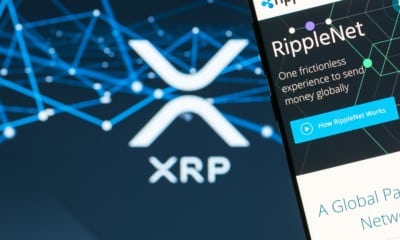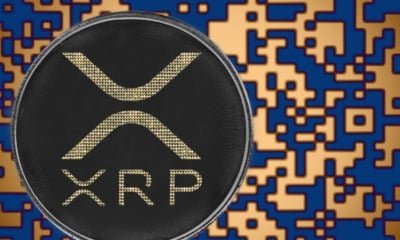Blogs
Ripple (XRP) Resurrects Smart Contract Platform Codius

Ripple continues to dominate the cryptocurrency news cycle, between new products, new partnerships, and global events. Their work with major financial institutions places them at the forefront of blockchain’s general adoption. Among their clients are traditional corporate giants like Western Union, Santander, and even IBM. Alongside these profitable ventures, Ripple’s recent philanthropy work brought a major amount of good press to the cryptocurrency industry. Their fulfillment of every crowdfunding campaign on DonorsChoose.org made the television airwaves on Stephen Colbert’s late-night show.
Yet there’s one blockchain factor that Ripple avoided since 2015. Smart contracts for decentralized applications have been notably absent. Their decision to shelve Codius, their native smart contract platform, made sense at the time. Smart contracts were not proven technology, and Ethereum’s creation did not happen until a month later. Now that smart contracts are a regular factor of cryptocurrency projects, it would seem Ripple is back in the game. Codius’ site is back up and working.
Codius History and Revival
Originally announced in 2014, Codius began as a means for ‘distributed apps’ to run on the Ripple platform. Terminology and operations changed since then, but the general idea did not. Unfortunately for Ripple, their decision to suspend operation on the Codius platform prevented them from being first-to-market with a smart contract solution. However, their products continue to do well, and no one can accuse Ripple of failure in any regard. The cryptocurrency market may seem massive now, but it was only a small fraction of its current size in 2015. Ripple, perhaps correctly, believed that the market at the time could not support the Codius platform.
The environment now is much different. Smart contracts are a regular feature of blockchain platforms, and the market’s size has grown exponentially. Further, smart contracts are one of the most attractive features of blockchain technology for traditional businesses. If Ripple can successfully develop an easy to use, seamless smart contract platform, they could expand their offerings even beyond the already impressive array. The CTO of Ripple, Stefan Thomas, floated the idea of reviving the platform as early as August of 2017. Obviously, the latter half of 2017 and the beginning of 2018 proved quite hectic. Now that the market stabilized, it makes sense for Ripple to begin looking to new product lines.
Decentralized Applications with Ripple
Ripple’s payment protocol already provides a centralized system through which financial institutions can upgrade their legacy networks. Decentralized applications appeal more to small businesses and start-ups, or even end users. This type of trust-less, automatic process extends the capabilities of a traditionally distributed ledger and provides the framework for development teams. Rather than just simple transaction system that we see in the ‘x’ series of Ripple products, there is the potential for fully featured, robust financial applications that would make Ripple more attractive to the average person.
Further, the ability to institute smart contracts can help with RippleNet’s bridge-currency procedure. A system that creates automatically executed contracts when fiat pairings are matched allows an increased liquidity level. Even beyond the impressive state of the current Ripple liquidity pool, smart contracts add one more level of contingency plan.
Recent Ripple Market Performance
Ripple’s value steadily increased throughout the beginning of Q2 2018, roughly in line with the rest of the market. Now emerging from the bear market that dominated the first quarter of the year, the market is poised for a bull run, with sideways movement from most major currencies. Given Ripple’s major advances during the market doldrums, there’s a high chance that it could see another spike in value as products begin coming to fruition.
The addition of a smart contract layer can only help this process. Expanding product potential and the opportunity to attract a greater amount of development teams helps to dispel some of the persistent skepticism from the cryptocurrency community. Ripple easily has the best public relations arm of any blockchain project, and there’s little doubt they’ll continue to use it to their advantage.
For the latest cryptocurrency news, join our Telegram!
Disclaimer: This article should not be taken as, and is not intended to provide, investment advice. Global Coin Report and/or its affiliates, employees, writers, and subcontractors are cryptocurrency investors and from time to time may or may not have holdings in some of the coins or tokens they cover. Please conduct your own thorough research before investing in any cryptocurrency and read our full disclaimer.
Image courtesy of Chris Lofqvist via Flickr
Altcoins
XNO Token of Xeno NFT Hub listed on Bithumb Korea Exchange
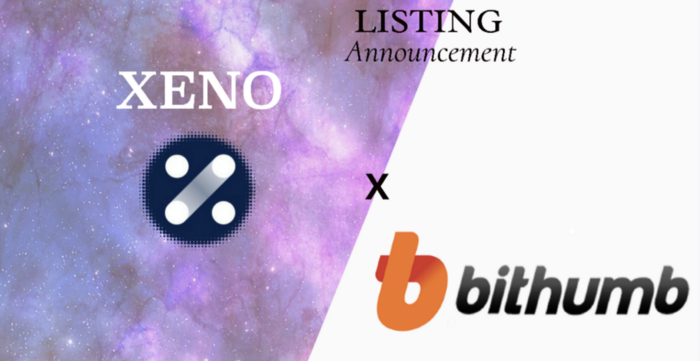
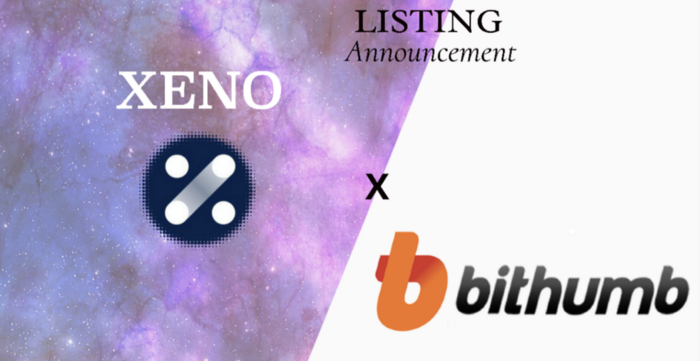
Hong Kong, Hong Kong, 25th January, 2021, // ChainWire //
Xeno Holdings Limited (xno.live ), a blockchain solutions company based in Hong Kong, has announced the listing of its ecosystem utility token XNO on the ‘Bithumb Korea’ cryptocurrency exchange on January 21st 2021.
Xeno NFT Hub (market.xno.live ), developed by Xeno Holdings, enables easy minting of digital items into NFTs while also providing a marketplace where anyone can securely trade NFTs.
The Xeno NFT Hub project team includes former members of the technology project Yosemite X based in San Francisco and professionals such as Gabby Dizon who is a games industry expert and NFT space influencer based in Southeast Asia.
NFT(Non-Fungible Token) technology has recently gained huge focus in the blockchain arena and beyond, making waves in the online gaming sector, the art world, and the digital copyrights industry in recent years. The strongest feature of NFTs is that “NFTs are unique digital assets that cannot be replaced or forged”. Unlike fungible tokens such as Bitcoin or Ether, NFTs are not interchangeable for other tokens of the same type but instead each NFT has a unique value and specific information that cannot be replaced. This fact makes NFTs the perfect solution to record and prove ownership of digital and real-world items like works of art, game items, limited-edition collectibles, and more. One of the ways to have a successful…
Altcoins
Should Crypto Projects Devote Resources to Community Growth and Marketing?

2020 has been an incredible year for crypto as investors have generated windfall profits and crypto projects have seen their businesses gain the spotlight they’ve been looking for. While Bitcoin has received most of the attention after major institutional investors announced they were accumulating the increasingly scarce asset, many altcoins have also seen their fair share of glory. When looking at all the big winners of the past year, the first project that probably comes to mind is Chainlink, having appreciated by more than 550% YTD and now valued at over $4.5 billion. But, the actual biggest winner of the year is HEX with a YTD return of over 5,000%.
I mention both of the above projects as they have each taken slightly different paths to achieve greatness. Chainlink has devoted resources toward building a fundamentally sound business with many strategic partnerships while HEX has spent vast sums of money on marketing and promotion. Both approaches are valid, but one thing is certain, it is absolutely imperative for crypto projects to let the crypto community know what makes them special. Of course, one of the reasons that makes crypto so valuable is the powerful blockchain technology that most projects are utilizing.
Cryptocurrency vs. Blockchain Technology
It’s important to make a distinction between blockchain technology and cryptocurrency. Although they are often used interchangeably, they are different. Blockchain technology and crypto were both created after the 2008 financial crisis, but cryptocurrency…
Altcoins
XENO starts VIP NFT trading service and collaborates with contemporary artist Hiro Yamagata


Hong Kong, Hong Kong, 24th December, 2020, // ChainWire //
The XENO NFT Hub (https://xno.live) will provide a crypto-powered digital items and collectables trading platform allowing users to create, buy, and sell NFTs. Additionally it will support auction based listings, governance and voting mechanisms, trade history tracking, user rating and other advanced features.
As a first step towards its fully comprehensive service, XENO NFT Hub launched a recent VIP service to select users and early adopters in December 2020 with plans for a full Public Beta to open in June 2021.
“NFTs are extremely flexible in their usage, from digital event tickets to artwork, and while NFTs have a very wide spectrum of uses and categories XENO will initially focus its partnership efforts and its own item curation on three primary areas: gaming, sports & entertainment, and collectibles.”, said XENO NFT Hub president Anthony Di Franco.
He also added “This does not mean we will prohibit other types of NFTs from our ecosystem However, it simply means that XENO’s efforts as a company will be targeted into these verticals initially as a cohesive business approach.”
Development and Procurement Lead, Gabby Dizon explained, “Despite our initial focus, we found ourselves with a unique opportunity to host some of the works of Mr. Hiro Yamagata. We are collaborating with Japanese artist Hiro Yamagata to enshrine some of his artwork into NFTs.”
Mr. Yamagata has…
-

 Blogs6 years ago
Blogs6 years agoBitcoin Cash (BCH) and Ripple (XRP) Headed to Expansion with Revolut
-

 Blogs6 years ago
Blogs6 years agoAnother Bank Joins Ripple! The first ever bank in Oman to be a part of RippleNet
-

 Blogs6 years ago
Blogs6 years agoStandard Chartered Plans on Extending the Use of Ripple (XRP) Network
-

 Blogs6 years ago
Blogs6 years agoElectroneum (ETN) New Mining App Set For Mass Adoption
-

 Don't Miss6 years ago
Don't Miss6 years agoRipple’s five new partnerships are mouthwatering
-
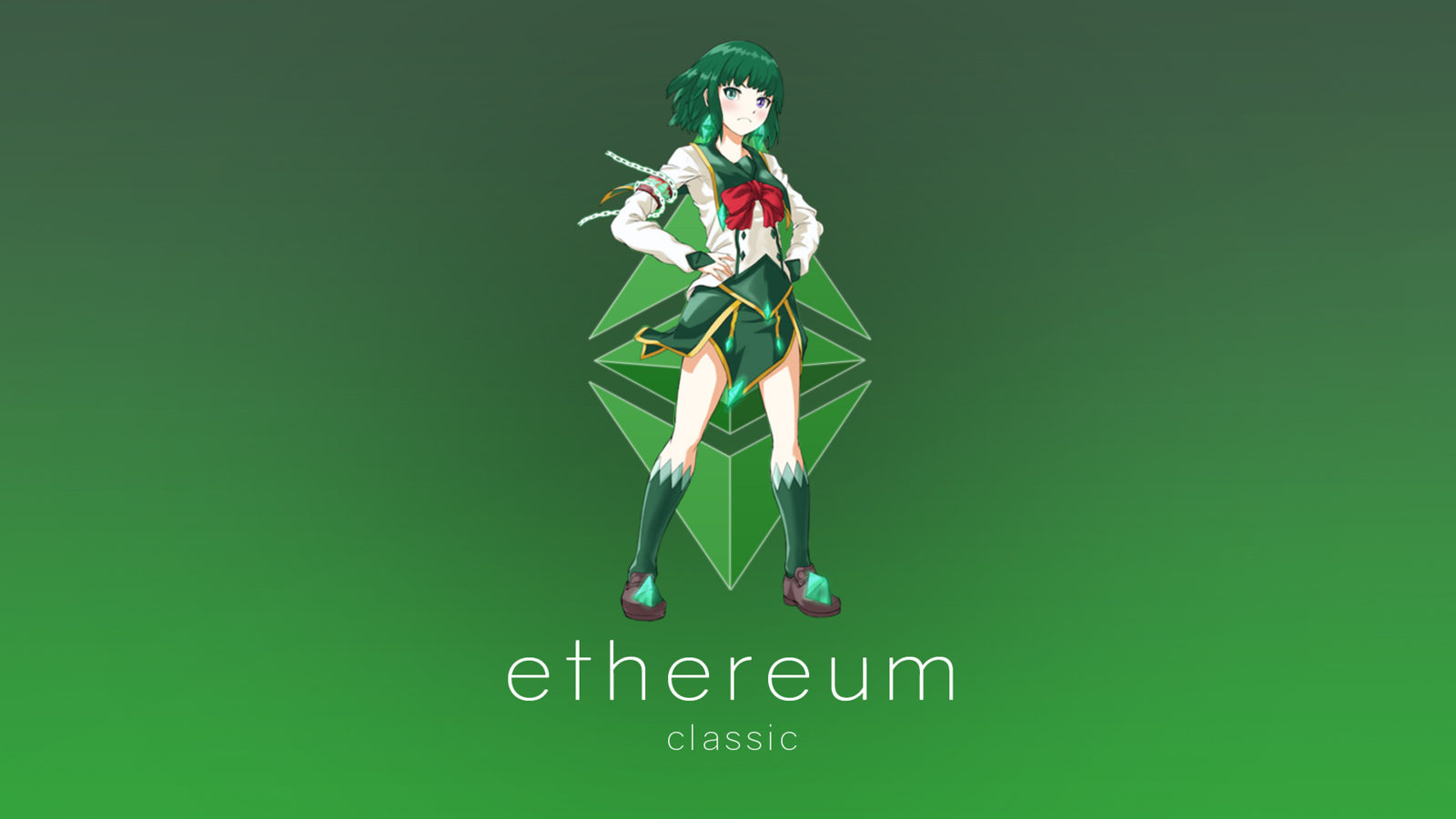
 Blogs6 years ago
Blogs6 years agoEthereum Classic (ETC) Is Aiming To Align With Ethereum (ETH)
-

 Blogs6 years ago
Blogs6 years agoCryptocurrency is paving new avenues for content creators to explore
-

 Blogs6 years ago
Blogs6 years agoLitecoin (LTC) Becomes Compatible with Blocknet while Getting Listed on Gemini Exchange

